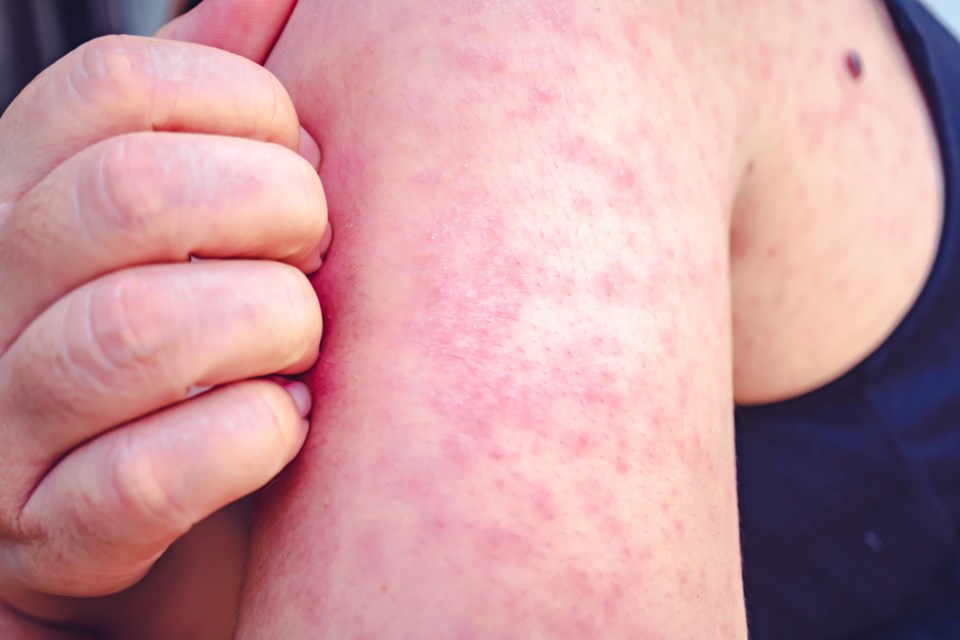KENORA – Northwestern Health Unit (NWHU) is doubling down on informing the public to get up-to-date on their vaccinations while travelling.
Last month, NWHU’s acting manager of infectious diseases Sandra Krikke implored those travelling across the province and outside of Canada that the risk of contracting measles is nearly imminent.
In a press conference with Medical Officer of Health, Dr. Kit Young-Hoon, she reiterated Krikke's statement that “90 per cent of non-immune people, that is people who are not immunized or have never had measles, who are exposed to the virus will get sick.”
Because the virus is airborne or transmitted through droplets “being in an airplane or other enclosed or indoor space, sharing the air with other people, exposes everyone in that space to measles,” said Young-Hoon.
Symptoms of measles include red rashes, fever, cough, eye infections and upper respiratory infections.
Worldwide complications of measles include diarrhea, pneumonia, blindness, and infection of the brain complications such as middle ear infections and bronchial pneumonia occur in about 10 per cent of reported cases, according to Young-Hoon.
Before the pandemic, the measles virus was well-controlled in Canada and considered to be eliminated in many countries, according to
Young-Hoon said since the COVID-19 pandemic, vaccination rates have slowed significantly.
“During the pandemic, public health efforts had to be reallocated to the pandemic response and the very significant vaccination effort during that time,” Young-Hoon said.
Public health staff were refocused on delivering the COVID-19 vaccine, but in turn, other vaccination efforts were put on hold.
"We are not able to do the annual push out of the vaccine for children. Usually, children get the vaccine, and they usually get two doses. The first dose is usually at 12 months of age and the second dose could be anywhere from 18 months of age, generally up to 4 to 6 years, depending on the country's immunization schedule.
“What we've noticed is that with the pandemic response, there was a backlog of vaccination efforts, and I think in all countries, there's an effort to catch up.”
Young-Hoon believes with the refocusing on vaccination efforts, the NWHU could catch up by the end of the school year.
Currently, there are no cases of measles in Northwestern Ontario -- however Young-Hoon is warning that the increase in travel internationally will increase the risk of spreading the virus in NWHU’s catchment area.
"All cases in the country had been infected outside of Canada, Ontario and Quebec have now both had one case reported that has no link to travel, which is a sign of community transmission.
“The fact that currently in Canada there have been more cases of measles reported so far in 2024 than the country saw in all of 2023 is largely due to the increase in international travel and the disruptions in immunization delivery due to the COVID-19 pandemic. Measles is extremely contagious.”
Although the virus is extremely hazardous to people of all ages, children, especially infants, can get the worst of the infection.
Young-Hoon said measles is still one of the leading causes of vaccine-preventable deaths in children.
"Those born before 1970 are considered to have immunity due to the circulation of the virus before widespread vaccination. For those born after 1970 vaccination is the best protection against measles. Our goal at this time is to prevent measles through immunization.
“We are particularly concerned about children and youth who have not completed their routine immunizations appropriate to their age group. Individuals or families that are travelling out of Canada should also ensure that they check with their health-care provider or the Northwestern Health Unit.”
